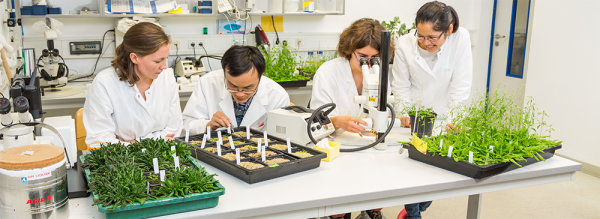

All living organisms change – during the course of their lifetimes and across generations. The Max Planck Institute for Biology is concerned with the development and evolution of animals and plants. The Institute’s scientists study how a fully functioning organism develops from a fertilized egg cell, and which genes are involved. They also analyze the role of these developmental processes in the emergence of new species, and examine the evolution of proteins. In a bid to find answers to their questions, the scientists work with model organisms, such as the zebra fish, fruit fly, threadworm and thale cress, a relative of the cabbage family. It has been shown that genes which influence development work in a similar way in different organisms – be they flies or people, thale cress or rice.

Tübingen is a special place for research. Very few locations offer such a wide range of research areas in such close proximity - both physically and figuratively. Not only are all of Tübingen's research institutions just a stone's throw away from each other, they also collaborate closely within the Tübingen Research Campus.
Visit page
Life in Tübingen is life in the heart of Europe and in one of Germany's most scenic and economically competitive regions. It's a bustling mediaeval town with a young, international, and vibrant population and a rich cultural and artistic scene. Lectures, concerts, film festivals, and more: life in Tübingen never gets boring.
Visit page
The Neurosciences in Tübingen with more than 100 active research groups have the potential to rank among the most successful neuroscientific sites in Europe.
Visit page